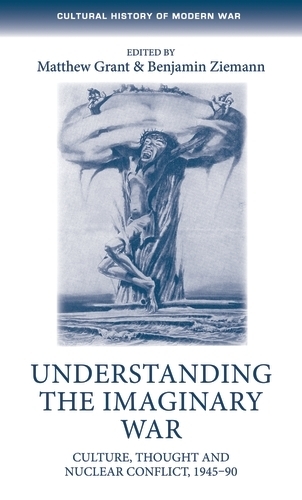
Understanding the Imaginary War: Culture, Thought and Nuclear Conflict, 194590
(Hardback)
Available Formats
Publishing Details
Understanding the Imaginary War: Culture, Thought and Nuclear Conflict, 194590
By (Author) Matthew Grant
Edited by Benjamin Ziemann
Manchester University Press
Manchester University Press
17th August 2016
United Kingdom
Classifications
Physical Properties
Hardback
320
Width 138mm, Height 216mm
Description
This collection offers a fresh interpretation of the Cold War as an imaginary war, a conflict that had imaginations of nuclear devastation as one of its main battlegrounds. The book includes survey chapters and case studies on Western Europe, the USSR, Japan and the USA. Looking at various strands of intellectual debate and at different media, from documentary film to fiction, the chapters demonstrate the difficulties to make the unthinkable and unimaginable - nuclear apocalypse - imaginable. The book will be required reading for everyone who wants to understand the cultural dynamics of the Cold War through the angle of its core ingredient, nuclear weapons. -- .
Reviews
Understanding the Imaginary War is useful both as a historical tool, but also as a reminder that nuclear weapons still exist, and that nuclear war is still a very real possibility. If anything, the current political situation between Russia and the United States, and especially the inclusion of Article 27 in Russias 2014 Military Doctrine relating to the possibility of using nuclear weapons to respond to a conventional attack, shows that emotions felt during the Cold War still affect contemporary relations.
April Curtis
The books fresh approach to the topic and wide range of perspectives will be welcomed by all with an interest in history, political science and cultural studies, and in particular by those of us interested in the Cold War and the history of nuclear weapons.
Dr Mattias Eken, University of St Andrews, Reviews in History
The volume succeeds in providing a deeper understanding of the cultural responses to nuclear weapons and is an important entry in Cold War historiography, bridging the gap between political, cultural, psychological, and emotional interpretations of nuclear weapons.
Emily Gibbs, University of Liverpool, Journal of Contemporary History
Author Bio
Matthew Grant is Senior Lecturer in History at the University of Essex
Benjamin Ziemann is Professor of Modern German History at the University of Sheffield
